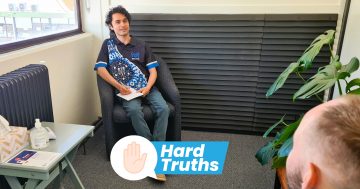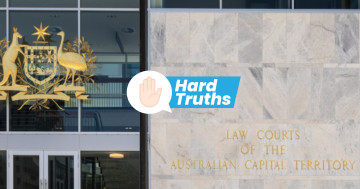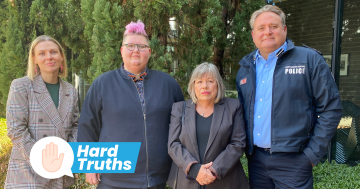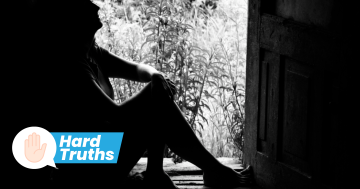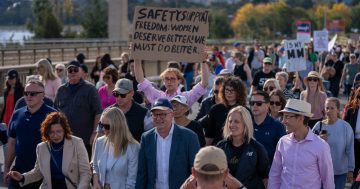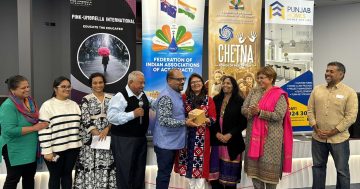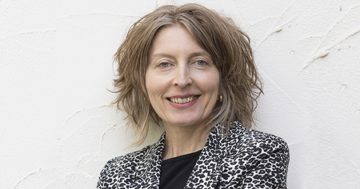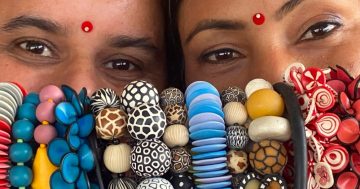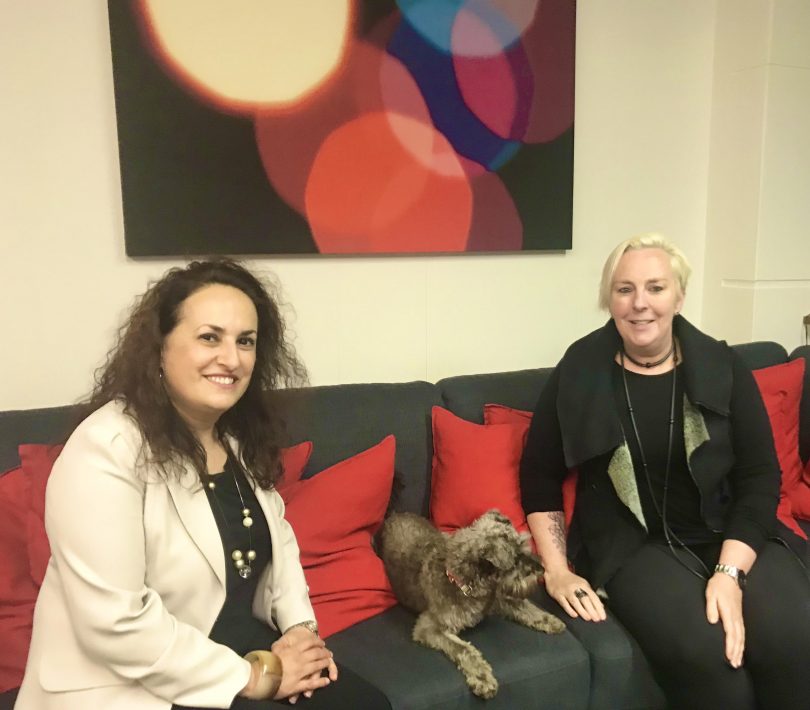
Sonia di Mezza from DVCS and the AIDS Action Council’s Philippa Moss (with office assistant Audrey). Photo: Genevieve Jacobs.
Well into the third decade of the 21st century, same-sex attracted, or transgender people – or anyone who varies from the heterosexual norm – can still face discrimination and stigma. And that, unfortunately, is one of the reasons why it’s still important to raise awareness of family and domestic violence in the LGBTIQ+ community.
“Domestic and family violence happens across all genders, relationships, sexual orientations and ethnicity,” says the Domestic Violence Crisis Service CEO, Sonia di Mezza.
“It’s something that affects this group, too. The definition of this violence is not just what happens between current partners – it can be family members, past partners, many different kinds of relationships.”
DVCS has partnered with AIDS Action Council (soon to be renamed Meridian) to launch the inaugural LGBTIQ+ domestic violence awareness day in the ACT on Thursday, 28 May. Also marked by organisations around the country, the day originated in Queensland with police who wanted to draw attention to the fact that all sorts of people can fall victim to family or domestic violence.
AIDS Action Council CEO Philippa Moss makes the point that while same-sex relationships are now recognised formally in Australia, that’s not necessarily the case in some families and cultures.
“If people around you think that your relationship is not a real thing in the first place, then they might not place violence in that context,” she says.
“The violence can be physical and psychological. It can be around people being outed when they don’t want to be by family or friends, or even situations where people are threatened or blackmailed with being outed around their gender or sexuality.”
Sonia identifies power control and manipulation as causative factors in these situations.
“It’s really up to a person if they want to out themselves about gender or sexuality – nobody has the right to disclose that without permission. Manipulation can also be forcing someone into a more masculine or feminine role through family pressure. That’s a form of abuse, too”.
DVCS and the AIDS Action Council have collaborated to work out how their organisations can work more closely together and encourage wide-ranging conversations about the prevalence of violence. Both feel that people in the LGBTIQ+ communities can face extra complexity as their relationships may not be recognised as valid in the first place
“People have a right to live free of abuse and also stigma,” Sonia says. “And they need to be able to access the support they need without feeling they have to explain themselves at length.”
Philippa says attitudes are changing towards same-sex and other relationships, but that’s all the more reason to bring conversations about violence into the public realm.
“The stigma gets internalised. People don’t value their own relationships and empower themselves to see the reality of a bad situation. They’ll continue living in unsafe relationships because of that discrimination,” she says, noting that can often particularly be the case for transgender people
The DVCS crisis intervention team can provide support and referrals for everyone who needs help. They also run a staying-at-home program for people who have left domestic and family violence situations and are trying to move on with their lives. Additionally, there are support groups for women and children.
The AIDS Action Council also offers the Westlund counselling service which is peer-led and community-controlled, operated by professional, qualified staff.
And the message from both organisations is that if you speak up about living with family or domestic violence, you will be heard and helped.
“You don’t have to live with domestic or family violence,” Sonia says. “There’s support available from both organisations. This is not something you need to put up with.”
You can find out more about the support DVCS offers here, and the services you can access from the AIDS Action Council here.
If you or someone you know is in life-threatening danger, call 000.












